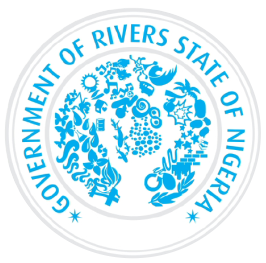
Public sector organisations in New Zealand comprise the state sector organisations plus those of local government.
The executive departments of the Philippines are the largest component of the national executive branch of the government of the Philippines. There are a total of 22 executive departments. The departments comprise the largest part of the country's bureaucracy. The heads of these departments are referred to as the Cabinet of the Philippines.

The Government of Pakistan is a federal government established by the Constitution of Pakistan as a constituted governing authority of the four provinces of a proclaimed and established by the parliamentary democratic republic, constitutionally called the Islamic Republic of Pakistan.

The government of Singapore consists of several departments, known as ministries and statutory boards in Singapore. Ministries are led by a member of the cabinet and deal with state matters that require direct political oversight. The member of the cabinet heading the ministry is known as the minister, who is supported by a junior minister known as the minister of state in Singapore. The administrative management of the ministry is led by a senior civil servant known as a permanent secretary.

The Department of Budget and Management of the Republic of the Philippines (DBM) is an executive body under the Office of the President of the Philippines. It is responsible for the sound and efficient use of government resources for national development and also as an instrument for the meeting of national socio-economic and political development goals.

The Ministry of Environment, Forest and Climate Change (MoEFCC) is an Indian government ministry. The ministry portfolio is currently held by Prakash Javadekar, Union Minister of Environment, Forest and Climate Change.
The Tanzania Commission for Science and Technology (COSTECH) is a parastatal organization affiliated with the government of Tanzania. It was created by an Act of the National Assembly of Tanzania in 1986 as a successor to the Tanzania National Scientific Research Council. The commission was a subsidiary institution to the Ministry of Communications, Science and Technology (MCST) and is now a subsidiary institution to the Ministry of Education, Science & Technology. The main offices are located in Dar es Salaam.
The Ministry of Education and Vocational Training was a government body responsible for providing education in Tanzania. The head offices were located in Dar es Salaam. Under President John Magufuli's first cabinet, the ministry was amalgamated with other functions to form the new Ministry of Education, Science, Technology and Vocational Training.
This is a list of the federal institutions of Tanzania.

The Ministries of Jamaica are created at the discretion of the Prime Minister of Jamaica it carry out the functions of Government. As of 2016 the current Prime Minister is The Most Honorable Andrew Michael Holness, ON, MP. The agencies of Jamaica are created by both Parliamentary law and assigned to ministers to oversee. The governance structure consists of ministries with portfolios that have agencies that carry out its functions.

The Federal Ministry of Science & Technology is a Nigerian ministry whose mission is to facilitate the development and deployment of science and technology apparatus to enhance the pace of socio-economic development of the country through appropriate technological inputs into productive activities in the nation. It is headed by a Minister appointed by the President, assisted by a Permanent Secretary, who is a career civil servant. President Muhammadu Buhari, GCFR on November 11, 2015 swore in Dr. Christopher Ogbonnaya Onu as the Minister of Science and Technology with Dr.(Mrs) Amina Muhammed Bello Shamaki as the permanent secretary in the ministry.
The State Government and the Local Government are the two levels of government in Enugu State and in all other states of Nigeria. The governor is above a group of commissioners who he has placed as heads of ministries that oversee various portfolios. Both the governor and the commissioners form the Executive Council of Enugu State.
The Government agencies in Bangladesh are state controlled organizations that act independently to carry out the policies of the Government of Bangladesh. The Government Ministries are relatively small and merely policy-making organizations, allowed to control agencies by policy decisions. Some of the work of the government is carried out through state enterprises or limited companies.








